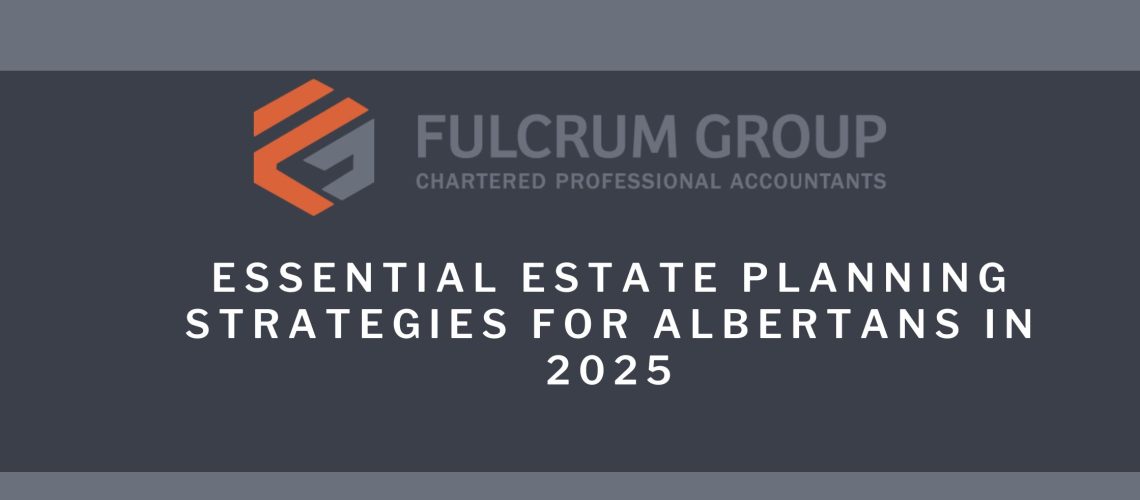Estate planning is one of the most important steps you can take to protect your family, your assets, and your legacy. While many Albertans think of estate planning as simply “writing a will,” the process involves much more—including tax planning, property transfers, and making sure your wishes are carried out effectively.
In an earlier post, we explored the importance of choosing the right executor—a decision that can make or break the administration of your estate. In this article, we’ll go a step further and look at some broader estate planning considerations specific to Alberta.
⚖️ Why Estate Planning Matters in Alberta
Alberta has some unique laws and tax implications that make planning ahead critical. Without a clear plan:
- The Wills and Succession Act will dictate how your estate is distributed if you do not have a will, which may not align with your wishes.
- Probate fees in Alberta are relatively modest compared to other provinces, but the process can cause delays and disputes which can increase professional costs.
- Tax exposure can be substantial—assets like RRSPs and rental properties may be subject to a final return that triggers capital gains tax.
🧩 Key Considerations for a Comprehensive Plan
👤 1. Choosing Executors and Backup Executors
As we’ve discussed in our earlier post, your executor carries heavy responsibility. You may also want to name an alternate executor in case your first choice is unable or unwilling to act. In blended families or business-owner situations, this choice becomes even more critical.
💸 2. Planning for Taxes at Death
At death, Canada’s tax system assumes you’ve sold all your assets at fair market value. The tax term is a ‘Deemed Disposition’. This can create a large taxable gain. Strategies like estate freezes, trusts, charitable gifts, and life insurance can help reduce that burden.
🚜 3. Protecting Family Businesses and Farms
Many of our clients in Grande Prairie and across Alberta own family farms or closely held corporations. Transitioning these assets can be complex. Planning ahead ensures you can take advantage of the Lifetime Capital Gains Exemption (current $1.25m for qualified small business shares and $1.25m for farm/fishing property) or the new intergenerational transfer rules.. Both strategies can provide significant tax relief with appropriate planning.
🧾 4. Coordinating with Joint Ownership and Beneficiary Designations
Jointly owned property and registered accounts (RRSPs, RRIFs, TFSAs) often pass outside the estate. This can simplify matters but may also create unintended consequences if not coordinated with your will. This area is often overlooked.
🩺 5. Powers of Attorney and Personal Directives
Estate planning isn’t only about what happens after death. In Alberta, an Enduring Power of Attorney (for financial matters) and a Personal Directive (for health and personal care) ensure decisions are made by someone you trust if you become incapacitated.
🚀 Taking the Next Step
At Fulcrum Group, we help Albertans create estate plans that are tax-efficient and tailored to their unique situations.
Ready to get started? Reach out today for a conversation about your estate planning options.
📞 Call us at (780) 532-4641

